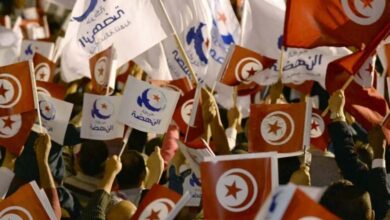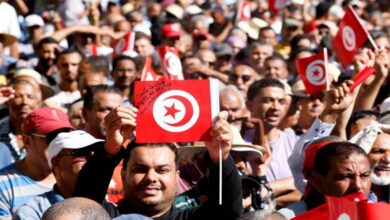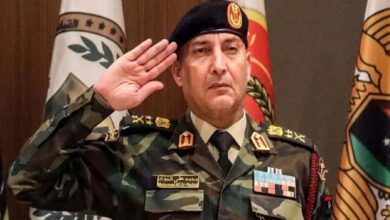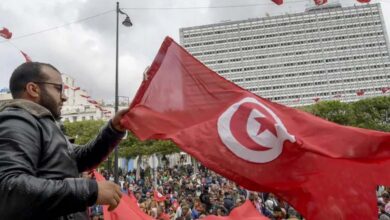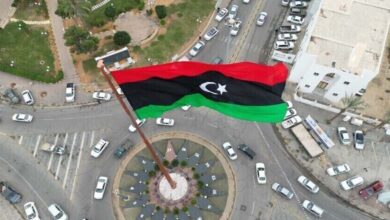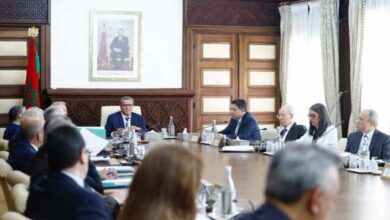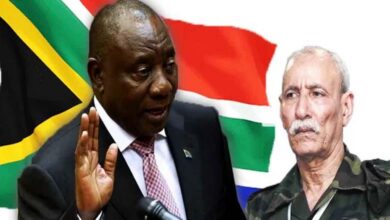Violence erupts in Tripoli after protesters opposing Dbeibeh are dispersed
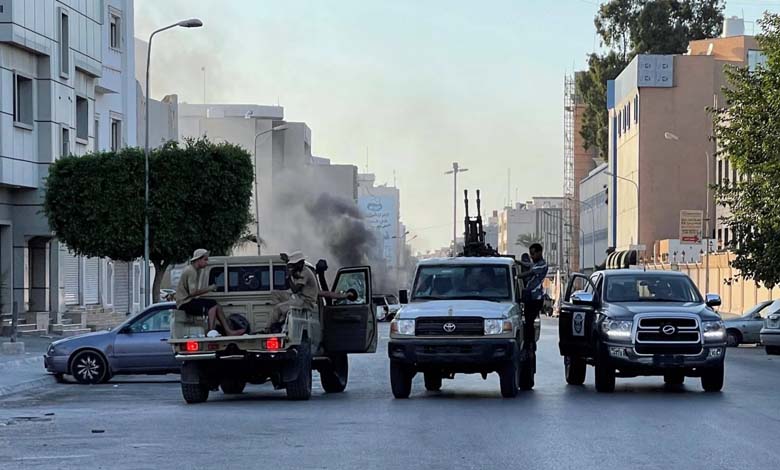
The dispersal of dozens of protesters demanding the departure of the Government of National Unity and attempting to reach its headquarters in the Libyan capital, Tripoli, resulted in clashes that injured several security personnel, according to a statement by the Ministry of Interior. Numerous political forces in Tripoli insist on the need to change the current political situation and dismiss Prime Minister Abdul Hamid Dbeibeh.
-
Libyans Persist in Street Protests to Oust Dbeibeh — A Message to Tetteh
-
UN and Regional Efforts to Contain Tensions in Tripoli
Videos and photos shared by local media showed dozens of protesters, some on motorcycles, heading toward the government headquarters in Tripoli. As they approached the site, they launched fireworks and projectiles at security forces, who responded with warning shots fired into the air, according to news agencies.
In a statement issued late Friday night, the Ministry of Interior reported that its personnel had come under a “armed attack,” during which assailants used “weapons and fireworks in an attempt to damage public property.” The ministry described the incident as a direct threat to the safety of its officers and confirmed that investigations were underway to identify and prosecute those involved.
-
The Smoke of Tripoli Clashes Still Rises: Political Economic and Security Repercussions
-
Militia Arms Chaos Reignites Violence Spiral in Tripoli
The ministry stressed its commitment to respecting the right to peaceful protest in public spaces, in accordance with the law and in a way that protects citizens, public property, and public order. Photos released by the ministry show several injured officers receiving first aid.
Earlier on Friday, hundreds of protesters had gathered at Martyrs’ Square in Tripoli, calling for the resignation of the unity government led by Dbeibeh.
-
Gheniwa’s Blood Strangles Dbeibah… Tripoli’s Nero Burns in His Own Fire
-
Heavy Clashes in Tripoli After the Killing of a Militia Leader Affiliated with the Presidential Council
This protest comes after Dbeibeh announced earlier in the week that responsibility for securing Tripoli now lies solely with the Ministry of Interior—a move seen as an effort to reinforce state authority after years of reliance on armed factions.
The decision was made in coordination with the Presidential Council, headed by Mohamed al-Menfi, at a politically sensitive time, as Dbeibeh seeks to strengthen his position amid growing domestic and international calls to end the transitional phase.
-
Armed Clashes in Tripoli Reveal Fragility of Security Situation
-
Washington Denies Training Armed Groups in Tripoli under Agreement with Dbeibeh
Between May 12 and 15, Tripoli witnessed intense fighting between armed groups and pro-government forces after the unity government moved to dismantle all militias operating in the city, which Dbeibeh said had become “stronger than the state.” The clashes left at least eight people dead, according to the United Nations, before a truce was reached.
In response to the government’s handling of the crisis, hundreds of protesters have taken to the streets in recent weeks to demand its removal.
-
Clashes Between Militias in Tripoli Mar Eid Atmosphere
-
Complications Hindering the Evacuation of Militias from Tripoli
Although Tripoli has enjoyed relative calm since the failure of Field Marshal Khalifa Haftar’s military offensive in 2019, sporadic clashes continue to erupt between rival armed groups vying for control and influence.
For more than three years, Libya has been divided between two governments: one, recognized by the United Nations and led by Dbeibeh, based in Tripoli and controlling the west of the country; the other, appointed by the House of Representatives and currently headed by Osama Hammad, based in Benghazi and governing the east and parts of the south.





